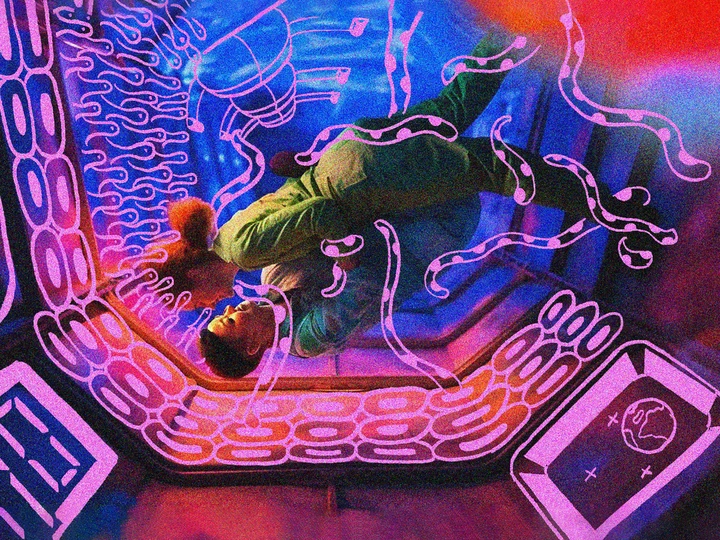Zero Gravity Pleasure

Katja Trinkwalder
Zero Gravity Pleasure is initiated by designers Hung Lu Chan and Katja Trinkwalder, based in Eindhoven. Chan is a Taiwanese interdisciplinary artist and social designer whose work explores space futures, the agency of nonhuman actors, and the decolonisation of imagination. Drawing from posthuman theory, his practice merges art, science, and spirituality—particularly in extraterrestrial and speculative contexts. He brings a strong sensibility for embodied methods and narrative design, which grounds the project’s participatory strategies such as guided visualisation, sensory facilitation, and scenario-building. His previous works have been exhibited across Europe and Asia, probing how imagination shapes planetary ethics.
Trinkwalder is a German design researcher and educator at the Köln International School of Design (KISD), where she specialises in gender design, intersectional pedagogy, and participatory methodologies. Her research focuses on how design can dismantle entrenched systems of power rather than perpetuate them, and she is committed to inclusive, co-creative learning formats. Within the project, she leads the structuring of workshop toolkits, ensuring they are accessible, critically reflective, and adaptable across contexts.
Together, Chan and Trinkwalder form a transdisciplinary team bridging speculative theory and grounded pedagogy. With support from the Creative Industries Fund NL and the Get-iT@TH Köln grant, they developed the project’s first research phase and were invited to host a short-term design project at KISD in 2024. Over the past year, they have built a critical framework for analysing space through feminist, queer, and post-structural lenses, investigating how microgravity environments shape autonomy, emotional connection, and spatial justice. Their collaboration aims to reimagine space design as a sensual, political, and inclusive practice for futures both on and beyond Earth.
Zero Gravity Pleasure is a design-driven research project that addresses a critical absence in space discourse: the neglect of intimacy, sexuality, and emotional well-being in microgravity environments. Initiated by interdisciplinary designer Hung Lu Chan and design researcher Katja Trinkwalder, the project stems from our shared interest in challenging normative paradigms in space architecture, especially the heteronormative, utilitarian frameworks that reduce bodies to survival functions and erase emotional and relational needs.
Combining feminist, queer, and architectural theory with speculative design and space science, we ask: How can space habitats support caring, consensual, and pleasure-centred forms of intimacy, beyond reproduction? During a one-year research trajectory supported by the Creative Industries Fund NL, we studied historical and contemporary architectures of pleasure, collaborated with experts such as Miha Turšič and Angelo Vermeulen, and developed a pilot workshop at KISD. There, students speculated on spatial tools and protocols for intimacy in orbit, surfacing new insights into privacy, consent, and relationality in extreme environments.
The most impactful outcome has been the development of a participatory methodology that empowers diverse voices to imagine futures often excluded from space narratives. Our critical framework merges theory with embodied practice, activating design as a tool for emotional justice and spatial inclusion.
In its next phase, the project will evolve through four pillars: deeper architectural research, expanded workshops, a co-creative digital platform, and a public exhibition. We aim to build an open archive of speculative tools, essays, and policies that reframe pleasure as central to space design. Ultimately, Zero Gravity Pleasure envisions space not as an escape from Earth, but as a site to reimagine how we live, love, and care on and beyond this planet.